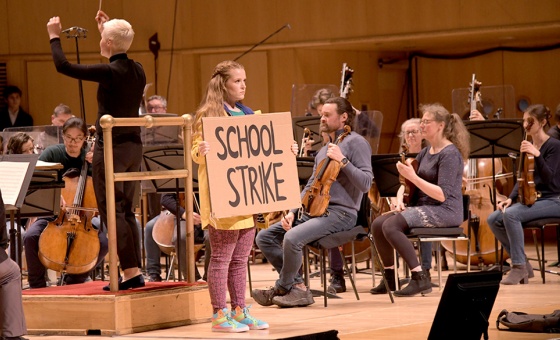This is the last article you can read this month
You can read more article this month
You can read more articles this month
Sorry your limit is up for this month
Reset on:
Please help support the Morning Star by subscribing here
IF PAUL MASON were to appear before John Humphrys on Mastermind there is no doubt what his special subject would be.
The TV pundit would undoubtedly do best on the subject of which he has become the foremost practitioner: “constructing left-wing arguments for right-wing policies.”
First up would be his defence of Britain’s nuclear weapons. For Mason, opposition to Trident is nothing more than the perennial obsession of “the old, Stalinist wing of the movement.”
This may come as a bit of a shock to many…
In his metropolitan milieu Mason may have overlooked the fact that just this April past the Scottish National Party complained that Westminster has written a blank cheque to base another generation of nuclear weapons in Scotland’s waters despite the opposition of the people of Scotland, civil society, the STUC, Scotland’s churches and the Scottish Parliament.
No wonder the self-described student Trotskyist turned “radical social democrat” is alarmed.
The Stalinist cabal that has haunted him since his student days has reached out from its hitherto subterranean Scottish fiefdom to colonise Britain’s biggest trade union and even to Jeremy Corbyn’s office while some of its obsessions, it seems, are shared by former Tory defence ministers like Michael Portillo.
There must be an ageing cadre of Red Army sleeper agents occupying the general staff.
What other explanation can there be for the discovery that there are senior military figures who assess Britain’s military priorities are better served by spending money on things other than Trident?
This must be a worry for the man who would reshape Britain’s labour movement to compete effectively with the Liberal Democrats on the ground chosen by them.
Though this week’s declaration by the two contenders for the Lib Dem leadership that they would both “press the nuclear button” will, if precedent is anything to go by, be the sign that this unashamed parter in Tory austerity is to be shortly incorporated in Mason’s new “progressive” alliance.
Next up is Mason’s Corbynista credentials. To meet his Marxist pretensions we must understand that his support for Jeremy Corbyn’s leadership of the Labour Party is no static mechanical thing. He sees its dialectically, a living thing subject to constant change, even revision.
In June three years ago Mason knew one thing: “Corbyn is incapable of lying to the British people; he is inured to elite politics; he didn’t spend his entire life in a Machiavellian project to gain power and an invitation to Oleg Deripaska’s yacht. That’s why I voted for him…”
In June two years ago the hero worship was still intact. Mason tweeted: “Corbyn brilliant — giving nothing to nuclear war fanatics, nothing to low paying small business people. And utterly connected w (sic) audience.”
But today Mason is less certain. It seems our Jeremy is losing touch with the people and reality, cocooned by advisers with their pet obsessions such as Brexit and the need to maintain a dialogue with the millions of Labour voters who voted for Britain to leave the European Union.
Yet three years ago Mason saw the big problem differently. “Our strategic problem,” he wrote, “is to reconnect not only with the Labour core voters who backed Brexit but also with those who have drifted to Ukip.”
Today these concerns are eclipsed. Worried by Corbyn’s defence of Labour’s conference policy of respecting the Brexit vote and pressing for an election to tackle the many problems facing the people — which he describes as triangulating between Remain and Brexit voters — he proposes his own triangulation. Not to the economic problems of austerity Britain but to issues set by the right-wing media.
“Labour needs to talk about more than economics. It needs to fight personal insecurity, crime, drugs, anti-social behaviour and organised crime as enthusiastically as it fights racism. It needs to sideline all voices who believe having a strong national security policy is somehow ‘imperialist.’ It needs to forget scrapping Trident.”
Now these questions are undoubtedly important but to suggest that they displace more general concerns about jobs, housing, social care, education and the future of the NHS, or that they cannot be tackled except by creating more jobs, building more council houses, fixing social care, overcoming the education crisis or saving the NHS from poverty and privatisation can only be the notion of someone for whom tackling these problems is an other world problem.
The starting point for Mason’s latest assault on the direction hitherto taken by the Labour Party is the results of the election to the European Parliament.
In a typically mechanical way, extracted from a wider context, he takes the results of an election constructed solely around Brexit and one moreover that failed to attract the attention of substantially more than half the electorate as the key indicator of how people might vote in a general election.
An election, incidentally, that may be conducted in the aftermath of whatever cock-up Boris Johnson is going to make of his negotiations with the EU — that is if he makes it as PM and if the EU bothers to reopen discussions on whatever withdrawal proposals he comes up with short of his likely unproductive encounter with a Parliament substantially opposed to leaving the EU.
Or perhaps in circumstances where Johnson is as likely to find a rapprochement with big business, the banks, the CBI and the EU Commission as he is likely to challenge them.
In these uncertain conditions Mason asserts that the struggle against right-wing authoritarianism and fascism is now the main priority.
He is quite explicit in rejecting Labour’s pitch to address the real-life problems of working people in austerity Britain. Instead, it seems we are in a culture war.
He says: “No amount of pledges to nationalise stuff, or appeals to class solidarity, wins that war. We are engaged in a culture war over values and narratives.
“Labour’s narrative has to be built around resistance to Brexit as a project of the racist and xenophobic right, and a story of communities revived by hope and solidarity.”
These are the desperate ideas of a man who has lost sight of the essential relationship between real-life working-class politics and is reaching for mechanical and abstract categories that reflect his ever changing subjectivity rather than the world as it is.
The Big Meet in Durham this weekend will see thousands of working-class people on the streets in a celebration of solidarity and class consciousness that through the oratory of the speakers and myriad conversations will raise the level of political understanding to a new high.
Brexit will be an issue. But only one among dozens of “narratives” — many untroubled by politics — but each constructed in families, at work, in neighbourhoods and among friends and fashioned from encounters with the ways in which life in austerity Britain shapes our understanding of life.
Within each family, each workplace, each neighbourhood there will be a wide variety of views. We can be absolutely sure that no one person, no one family, no one neighbourhood and no single workplace can be described as wholly reactionary or wholly progressive in the terms Mason sets out.
And to ground a political strategy on the one issue in which it seems opinions have hardly changed over the years – Brexit – and allow it to displace a fuller political debate is bound to lead to failure.
For Labour to focus its efforts on reversing the referendum result and neglecting the most pressing concerns of its natural constituency is the heartfelt desire of the “reactionary” class forces who most desperately want the threat of a Corbyn government to vanish.
In Mason’s Manichean prospectus our political identities are branded as reactionary or progressive by this one issue.
Yet, as we know from the detailed analysis of the referendum results, the divisions do not fall exclusively along party lines.
Around one-third of people who normally vote Labour, SNP, and Lib Dem voted for Brexit as did one in five Greens.
Mason sees the analytical category “progressive’ as standing for a moral position which he locates in a highly controversial and widely challenged conception of the EU as both a “progressive” institution in itself and capable of progressive transformation.
But progressive is a term deployed in the Marxist lexicon as signifying the actions of social forces that bring about profound challenges to the capitalist order.
People voted for and against leaving the EU for all kinds of reasons. For a good part of Labour’s natural constituency it was a protest against the capitalist order.
Who is to say these are not progressive impulses? And why would anyone offer the bearers of these ideas as a free gift to the right?
It is a profitless exercise to speculate on why Mason, and the claque of pundits who specialise in shaping political opinion on the left, are so erratic, why they swing from one analysis to another.
No doubt there is an unreconstructed Stalinist ideologue somewhere plundering Lenin’s collected works to construct a compelling indictment of Mason as a wildly vacillating petit bourgeois intellectual.
On the streets and in the pubs of Durham Mason’s narrative will be interpolated in even more direct and compelling language.










